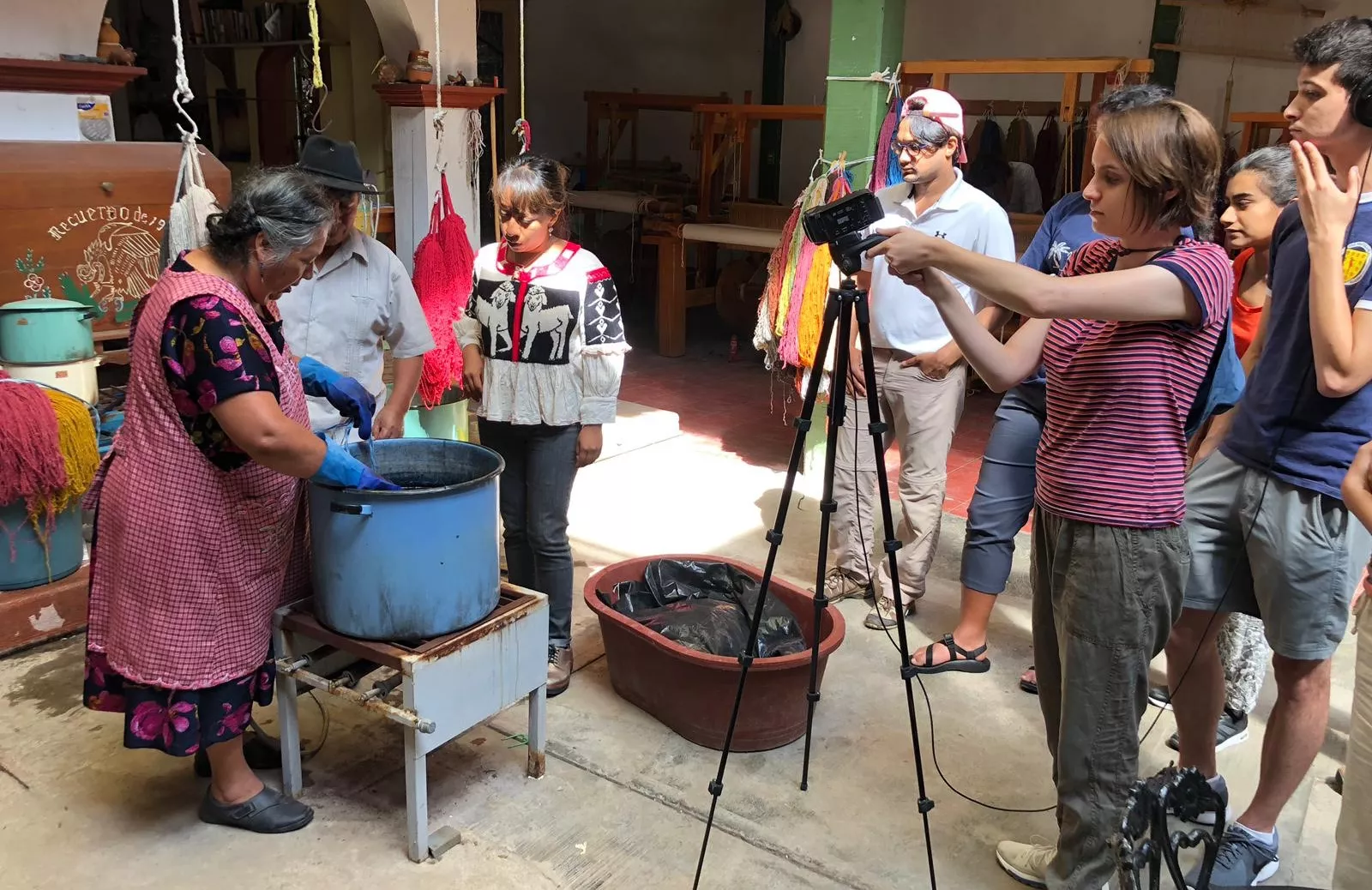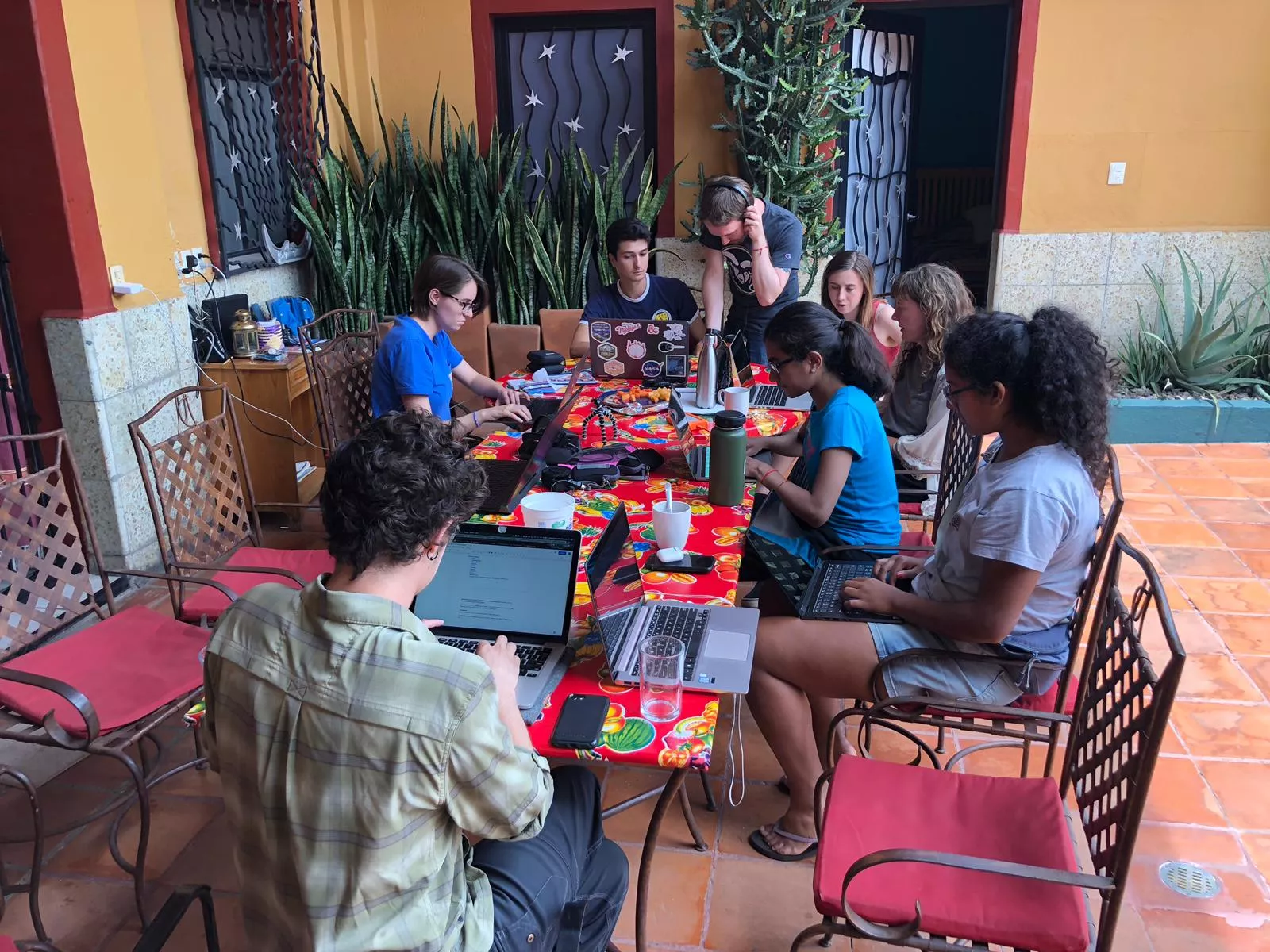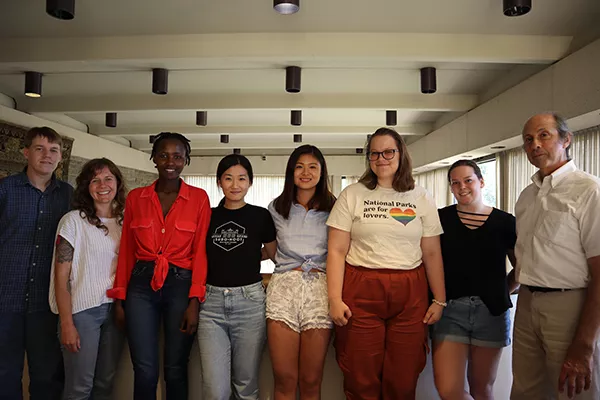
Two groups of Bryn Mawr students have been hard at work this summer collaborating with indigenous language revitalizationists in Mexico and the U.S.
Bryn Mawr students Savita Deo '21 and Ally Freemond '21 joined Postdoctoral Fellow Kate Riestenberg and other Tri-Co students and faculty in Oaxaca, Mexico for a one month "Linguistics Field School," where they worked on a set of Zapotec Talking Dictionaries. Zapotec languages are a family of indigenous languages spoken in Oaxaca, Mexico, and by diaspora populations in the U.S.
Language revitalizationists from four Zapotec communities led students in adding speaker recordings, photos, videos, and Tweets to the online dictionaries, which are interactive, constantly expanding, community-authored, and community-owned. The Field School was directed by Haverford Chair of Linguistics Brook Danielle Lillehaugen and funded through a grant from the National Science Foundation to Swarthmore College (PI Professor K. David Harrison).
Back on campus, Bryn Mawr students worked with linguist Dr. Kevin Connelly on a Digital Bryn Mawr Seed Grant-funded project to develop digital resources for an endangered Native American language, continuing work started during the academic year through the Praxis program. Rosie Arasa '22, Vinty Guo '20, and Ruth Mullin '21 participated in the project as LITS Digital Technology Summer Interns. Vinny Ong '22 participated through the Civic Engagement Office’s Summer of Service program, and Gemma Van Nice '22 joined as a part-time volunteer. Students worked on web design and linguistic analysis of an online translated text as well as pedagogical tools such as word-building animations. The project was led by Riestenberg and was supported by Swarthmore Assistant Professor of Linguistics Jonathan Washington and online communication consultant Andy Alm.
Both projects engaged students in social justice work through the validation of marginalized languages while at the same time offering a forum to gain and apply digital competencies such as data management, audio and video editing, design thinking, algorithmic coding, and computational linguistics.

